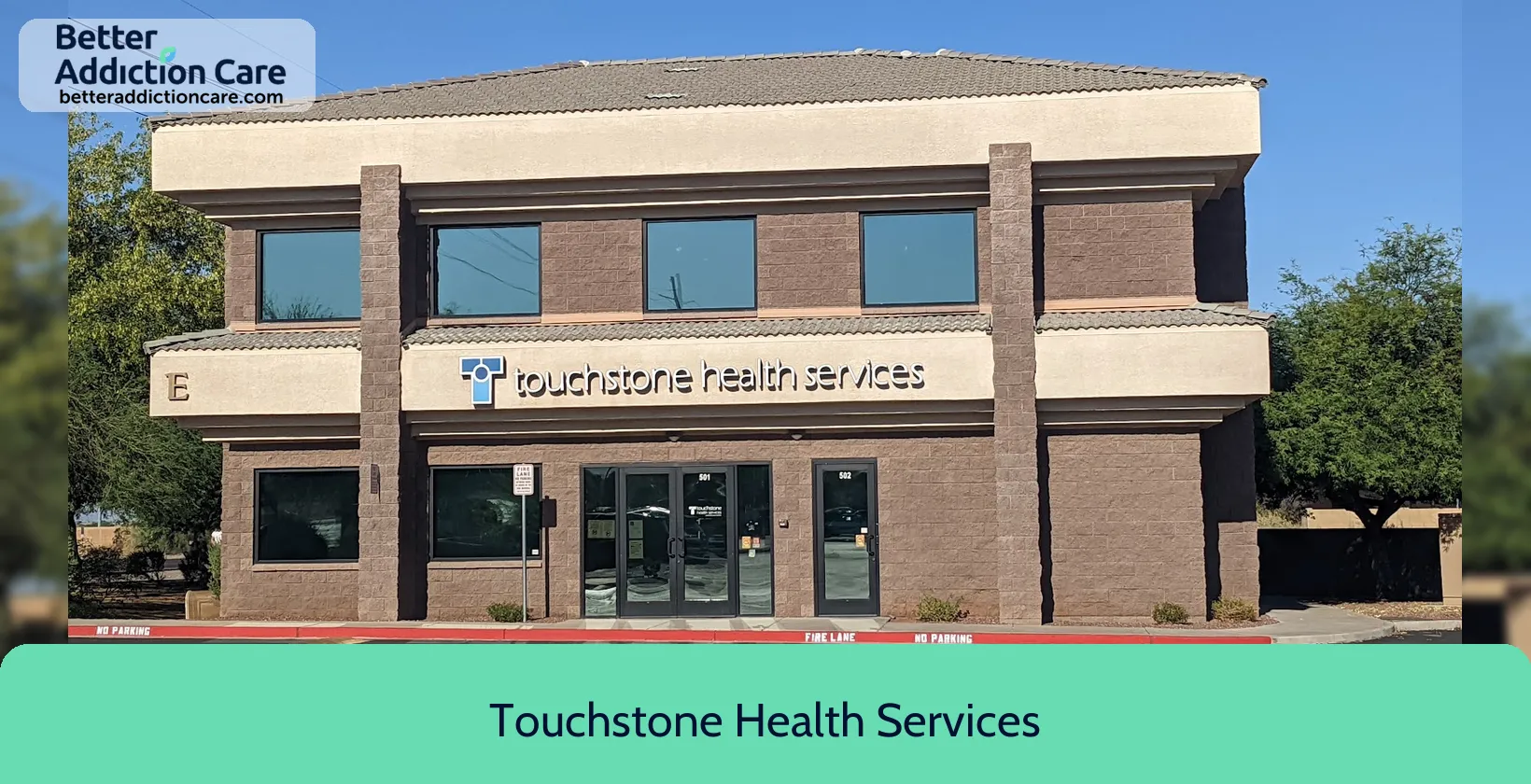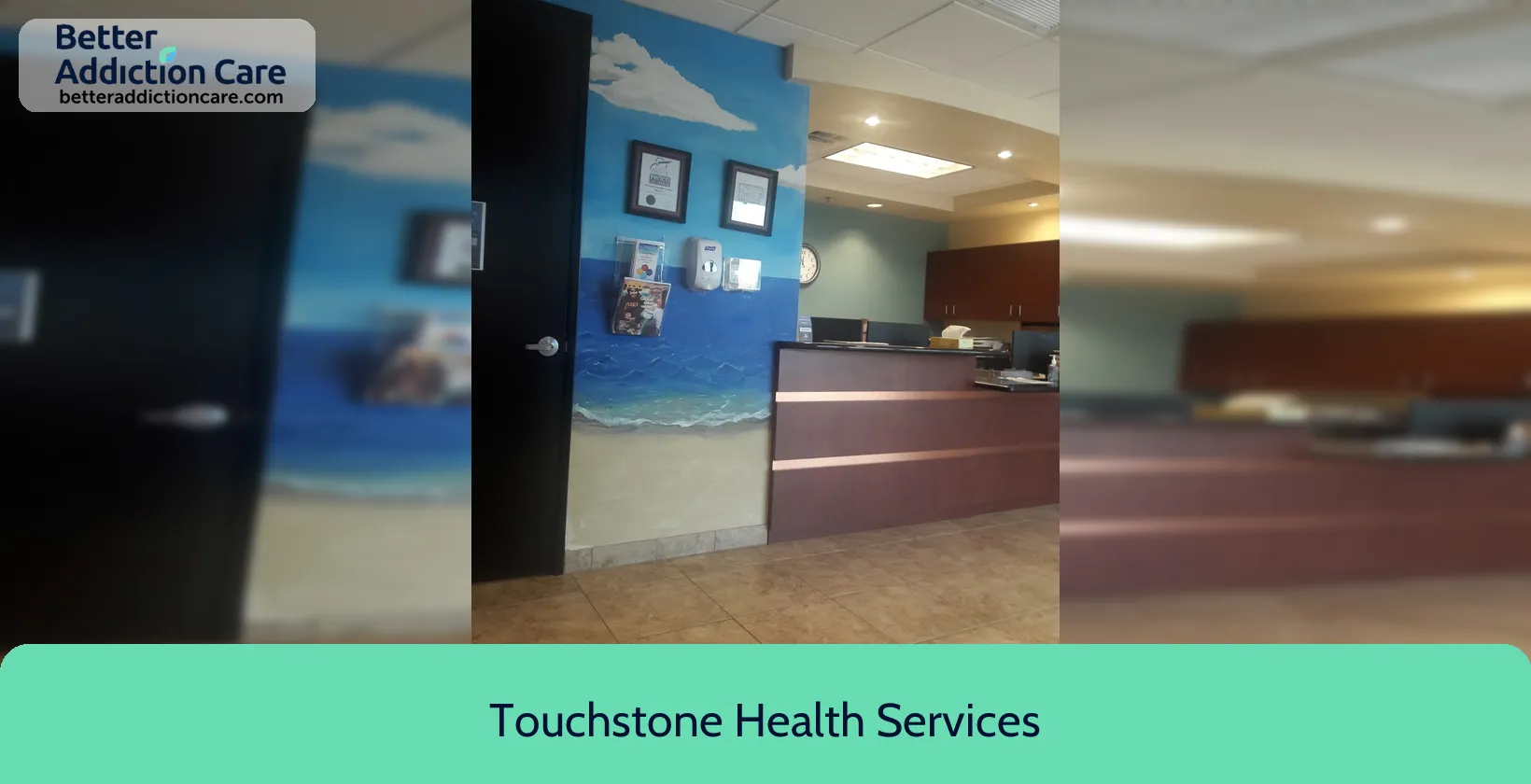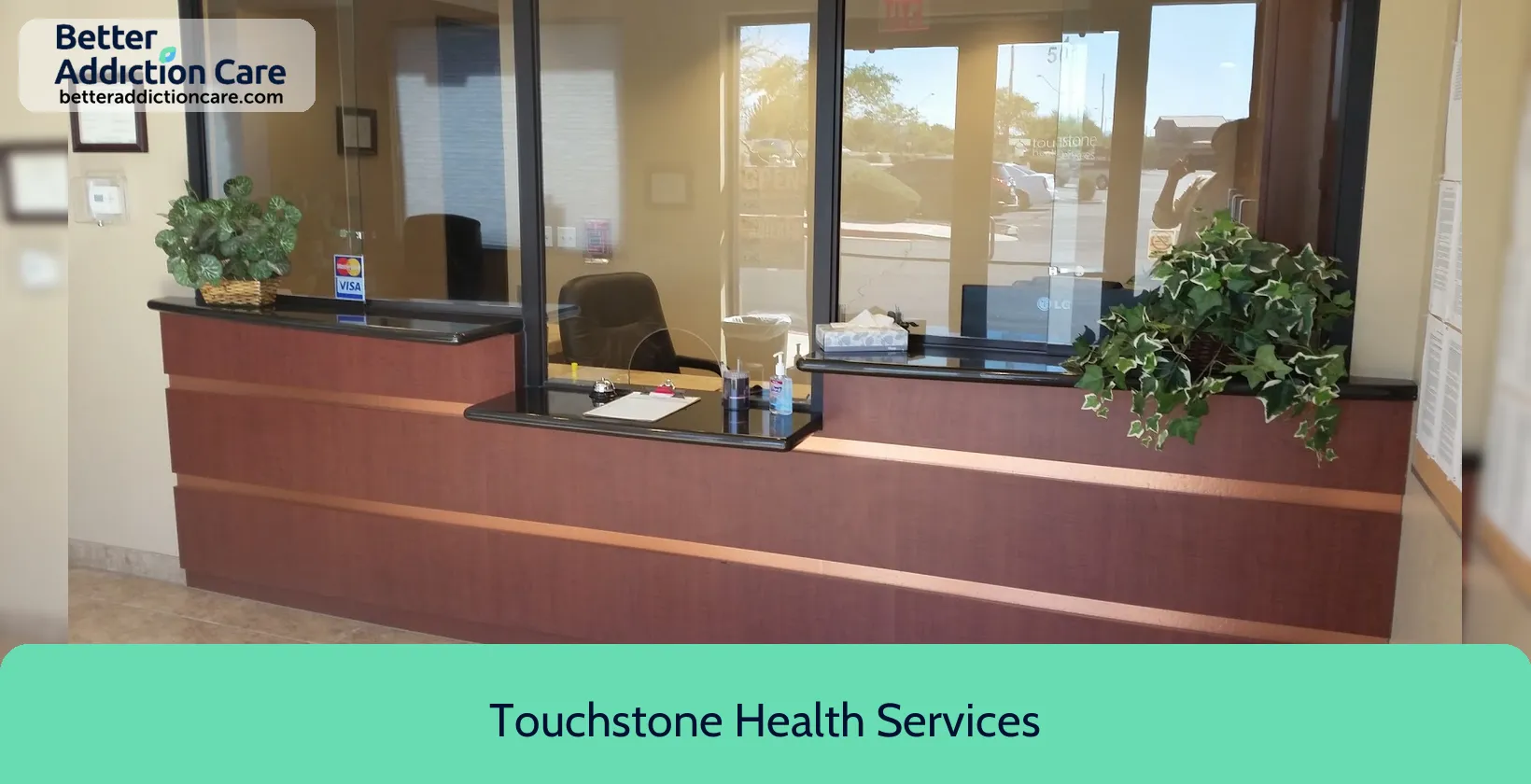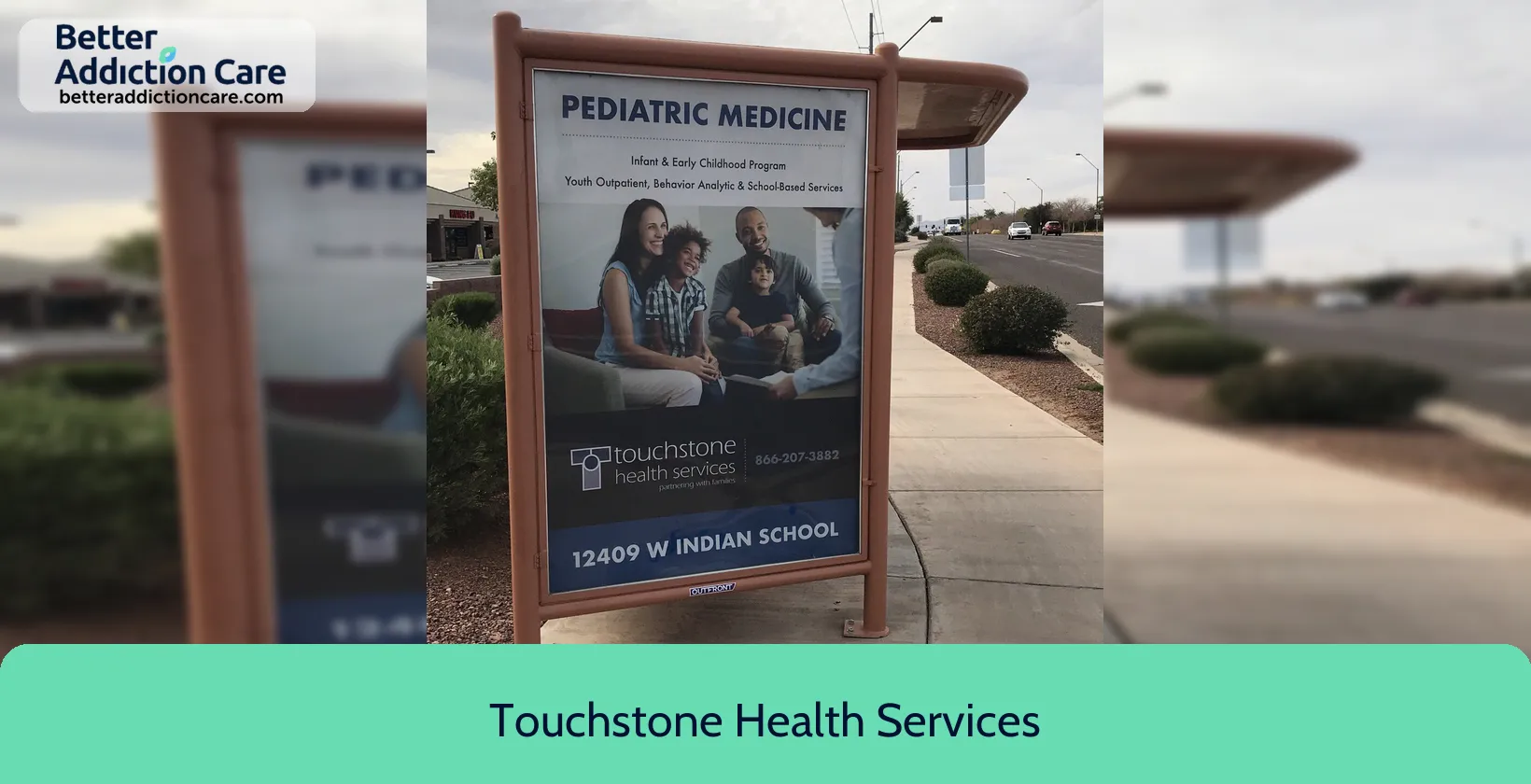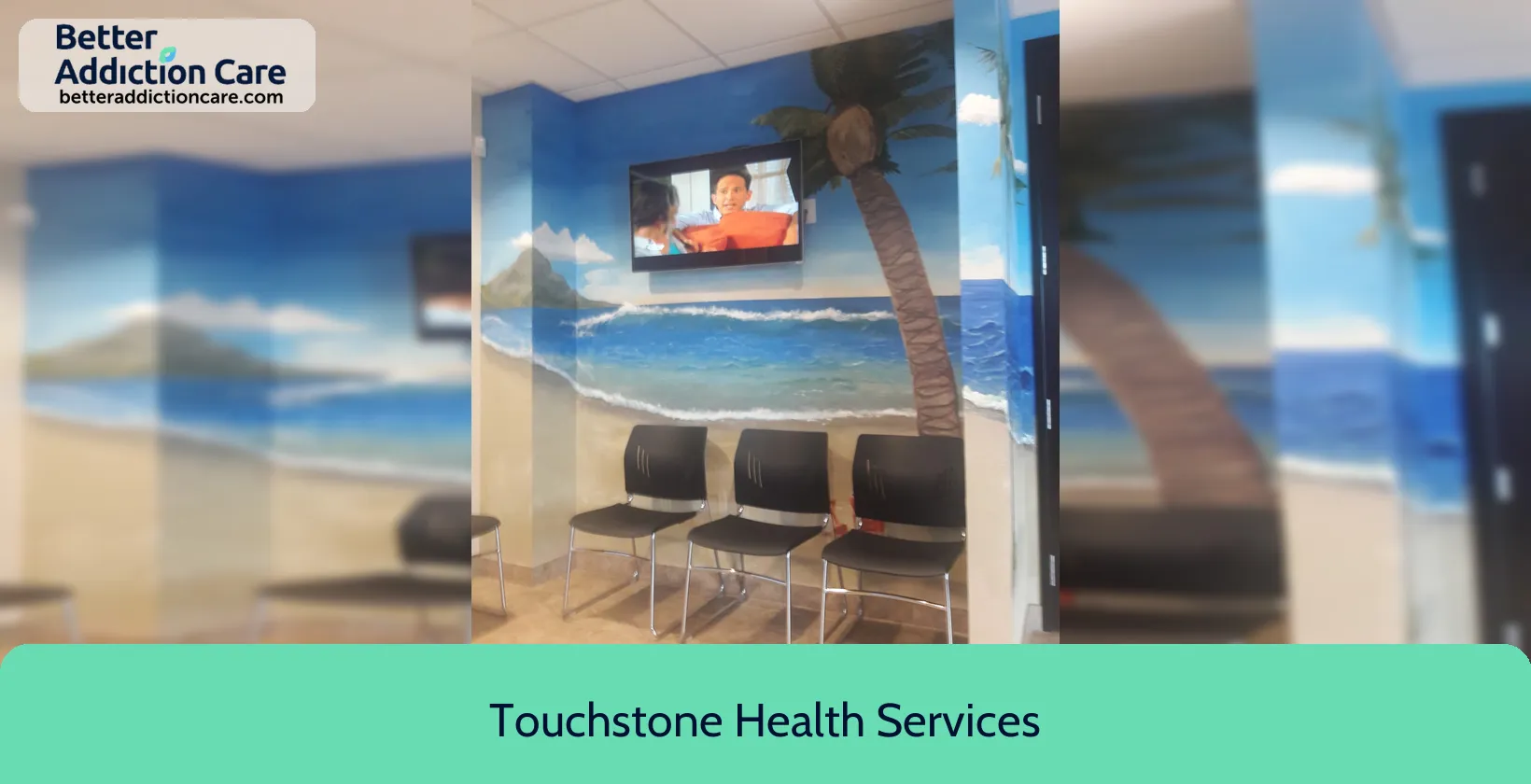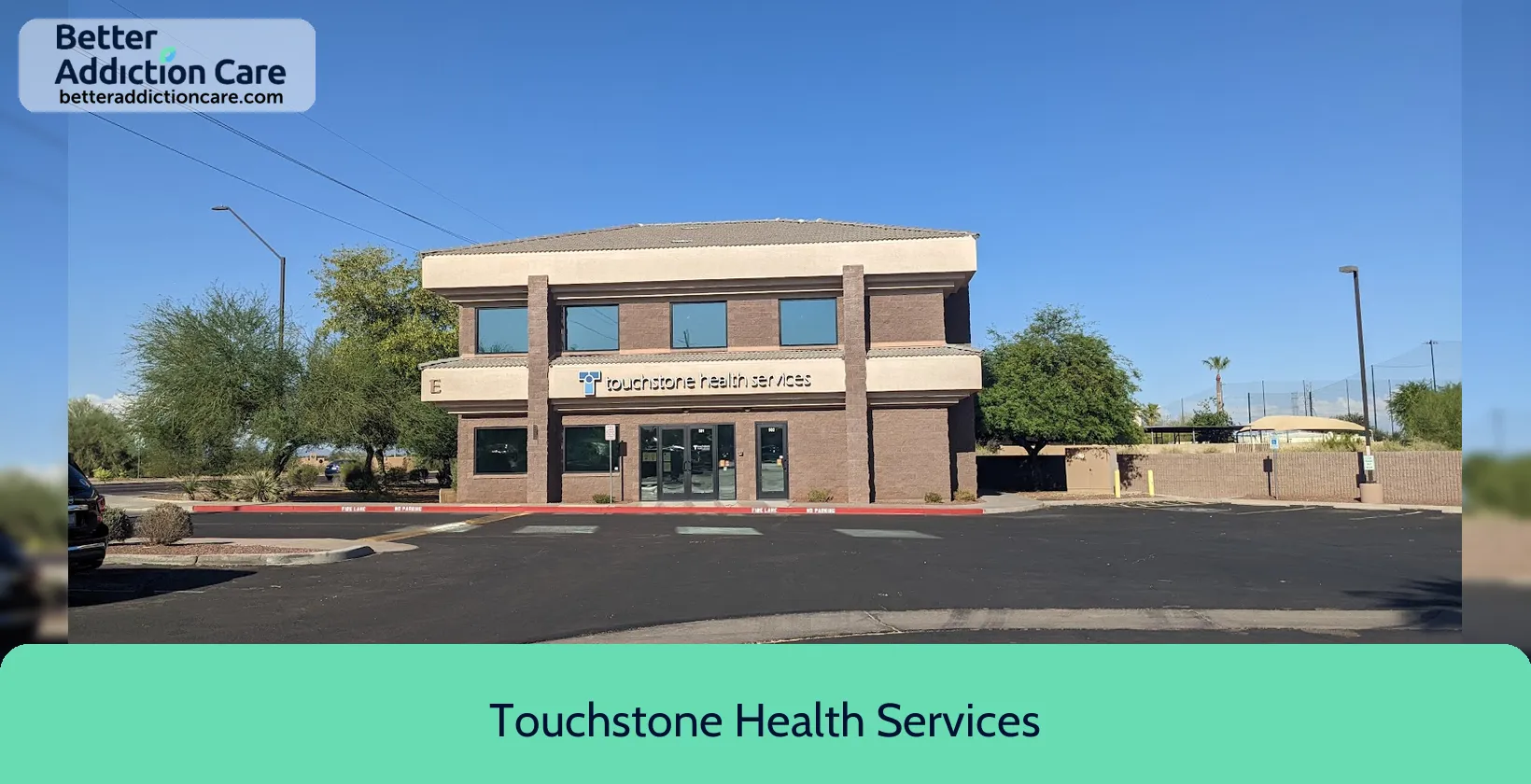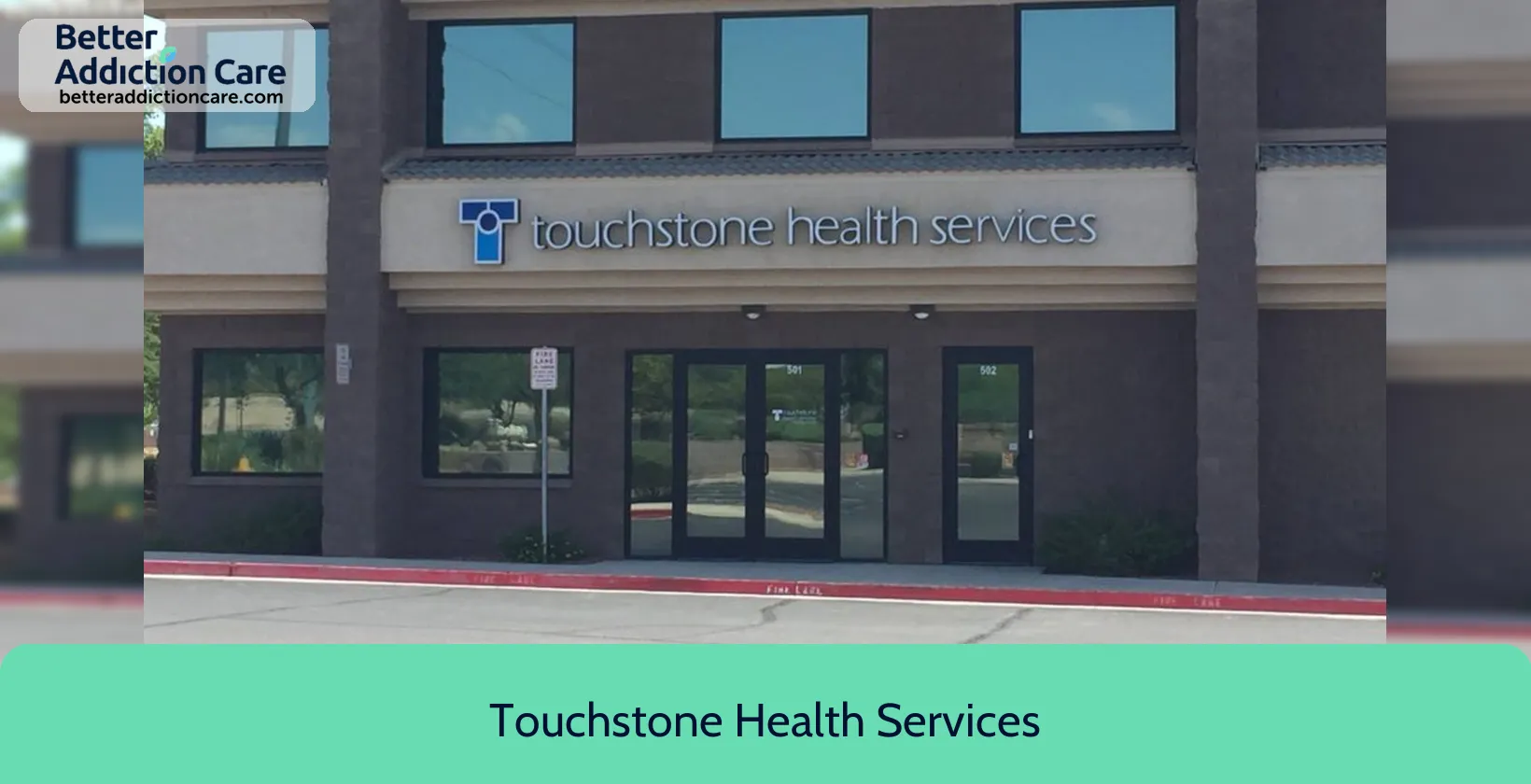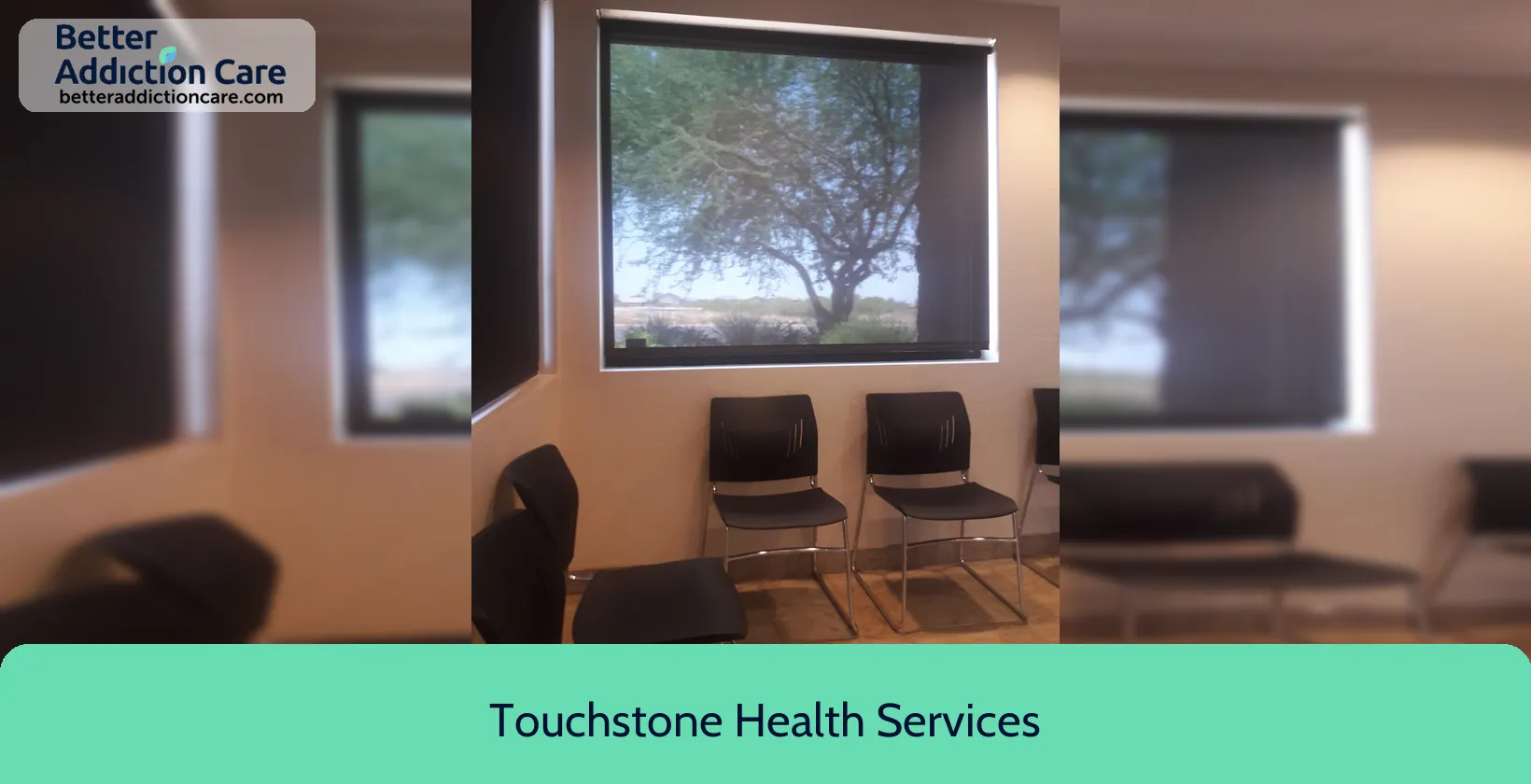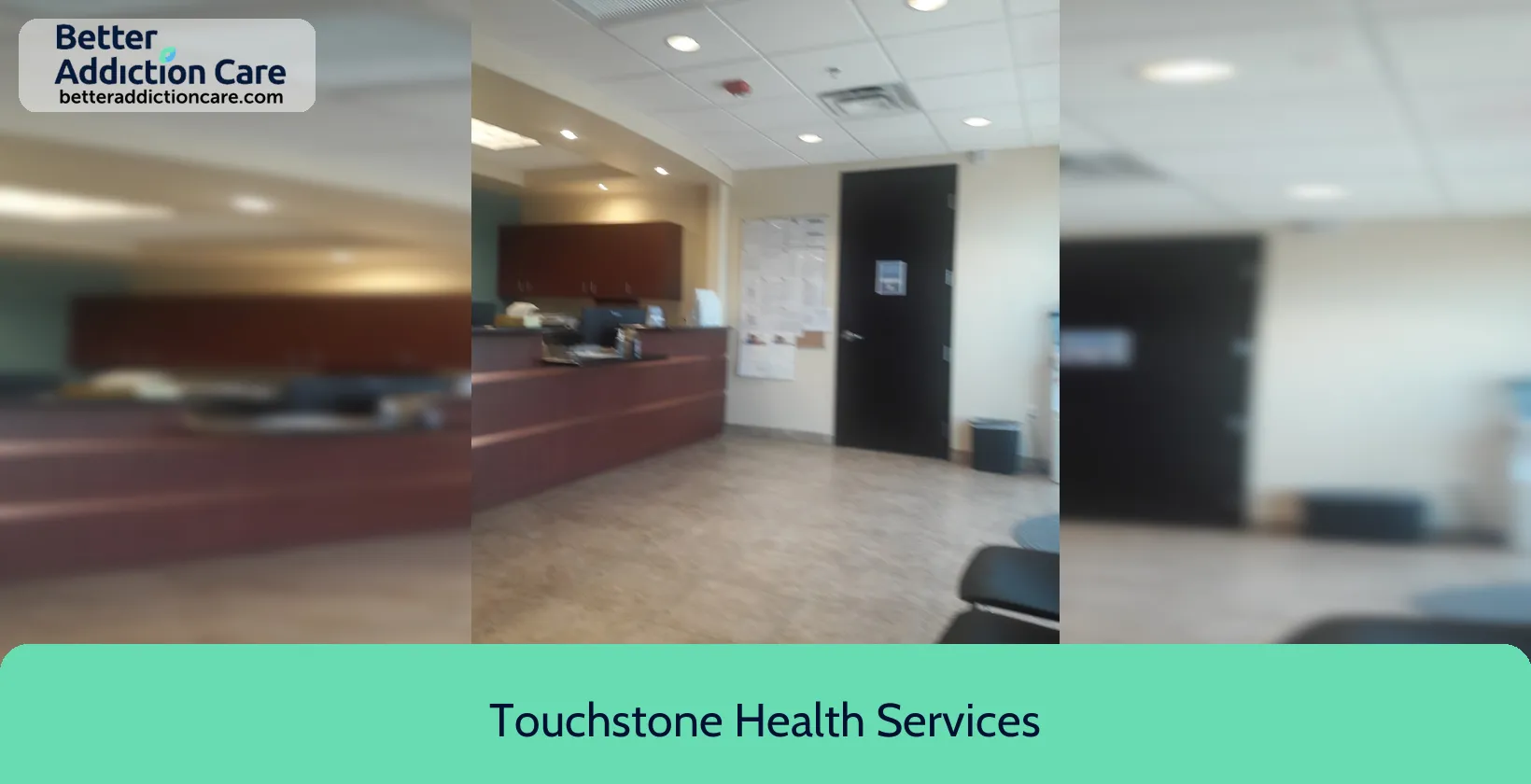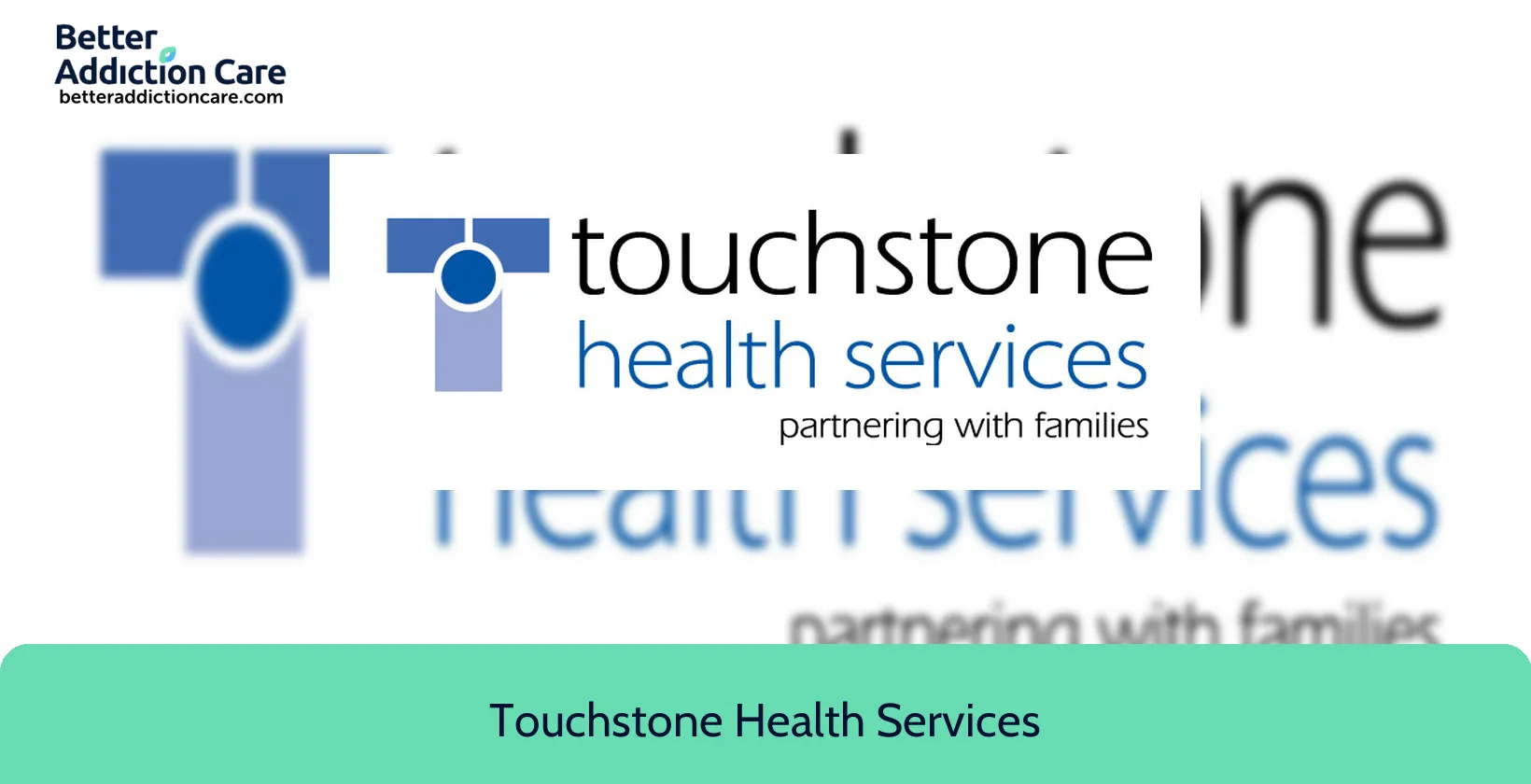Overview
Touchstone Health Services is a mental health treatment center for people seeking treatment near Maricopa County. As part of their treatment modalities for recovery, Touchstone Health Services provides couples/family therapy, group counseling, and cognitive behavioral therapy during treatment. Touchstone Health Services is located in Avondale, Arizona, accepting cash or self-payment for treatment.
Touchstone Health Services at a Glance
Payment Options
- Cash or self-payment
- Medicaid
- Medicare
- State-financed health insurance plan other than Medicaid
- Private health insurance
Assessments
- Screening for tobacco use
- Comprehensive mental health assessment
- Comprehensive substance use assessment
Age Groups
- Children/adolescents
Ancillary Services
- Case management service
- Family psychoeducation
- Integrated primary care services
- Suicide prevention services
Highlights About Touchstone Health Services
6.65/10
With an overall rating of 6.65/10, this facility has following balanced range of services. Alcohol Rehabilitation: 8.00/10, Drug Rehab and Detox: 6.00/10, Insurance and Payments: 6.00/10, Treatment Options: 6.61/10.-
Alcohol Rehabilitation 8.00
-
Treatment Options 6.61
-
Drug Rehab and Detox 6.00
-
Insurance and Payments 6.00
Treatment At Touchstone Health Services
Treatment Conditions
- Mental health treatment
- Substance use treatment
- Co-occurring Disorders
Care Levels
- Outpatient
Treatment Modalities
- Couples/family therapy
- Group counseling
- Cognitive behavioral therapy
- Dialectical behavior therapy
- Activity therapy
Ancillary Services
Languages
- Sign language services for the deaf and hard of hearing
- Spanish
Additional Services
- Pharmacotherapies administered during treatment
- Metabolic syndrome monitoring
Special Programs
- Clients with co-occurring mental and substance use disorders
- Clients who have experienced trauma
- Children/adolescents with serious emotional disturbance (SED)
Get Help Now
Common Questions About Touchstone Health Services
Contact Information
Other Facilities in Avondale

6.59

7.55
DISCLAIMER: The facility name, logo and brand are the property and registered trademarks of Copper Springs, and are being used for identification and informational purposes only. Use of these names, logos and brands shall not imply endorsement. BetterAddictionCare.com is not affiliated with or sponsored by Copper Springs.
